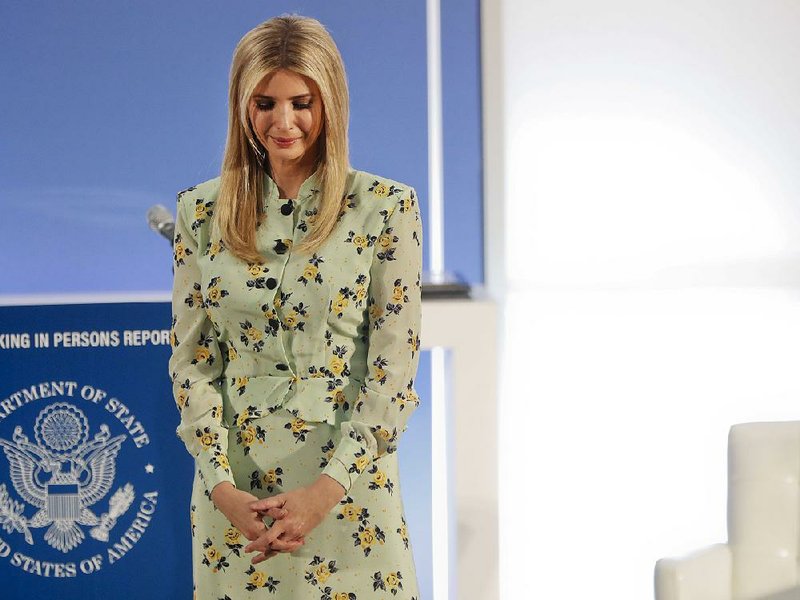WASHINGTON -- Children removed from their families and placed in institutional care are at greater risk of being trafficked, the U.S. warned Thursday in an annual report.
The State Department report, which ranks governments in their efforts to combat slavery and the flesh trade, left President Donald Trump's administration open to accusations of hypocrisy as the administration's "zero-tolerance" immigration policy has separated more than 2,000 children from their parents on the country's southern border.
The Trafficking in Persons report was unveiled in a ceremony at the State Department by Secretary of State Mike Pompeo and presidential adviser Ivanka Trump.
"Our commitment to fighting [human trafficking] and ending this together is incredibly strong," Pompeo said. "The world should know that we will not stop before we know human trafficking is a thing of the past."
Ivanka Trump attended the ceremony and handed out awards to individuals recognized for helping fight human trafficking, but did not make any public remarks.
Among the countries demoted to "Tier 3," the ranking system's lowest category, was Burma. The report cited its military operations in Rakhine state that forced hundreds of thousands of Rohingya Muslims to flee to Bangladesh. Other countries with "Tier 3" status include China, North Korea and Iran.
Countries on Tier 3 can be penalized with sanctions, including the withholding of nonhumanitarian aid and assistance that could affect agreements with the International Monetary Fund and World Bank.
The president retains the authority to waive the sanctions in U.S. national interests or if the penalties could adversely affect vulnerable populations.
Countries given the worst designation have often been granted such waivers.
The United States is listed on Tier 1, among countries most effectively combating human trafficking.
In a lengthy section on the detrimental effects of institutionalizing children, the report stated that "removal of a child from the family should only be considered as a temporary, last resort."
Children held in "government-run facilities, can be easy targets for traffickers" because of the "physical and psychological effects of staying in residential institutions, combined with societal isolation and often subpar regulatory oversight by governments," the report stated.
The Trump administration recently scaled back the zero-tolerance policy that separated more than 2,300 migrant families. After global uproar over the policy, Trump issued an order temporarily halting the practice of splitting families at the border and prosecuting parents and guardians, but administration officials say the policy remains intact.
When asked to explain the disconnect between U.S. policy and the trafficking report, a senior State Department official said the report released Thursday covers events from April 1, 2017, through the end of March 2018. The administration began enforcing the zero-tolerance policy in May of this year. The official added that the report outlines ways in which all countries, including those like the U.S. that are listed in the top tier, can improve.
Human-rights activists said the administration should take its own advice.
"The State Department deserves credit for its comprehensive and eloquent exposition on the horrors of institutionalization of children," said John Sifton, an advocacy director at Human Rights Watch.
"We strongly urge White House and Department of Homeland Security officials to read that section in the context of their procedures for processing asylum seekers and other persons seeking entry into the United States," he added.
A Section on 06/29/2018

